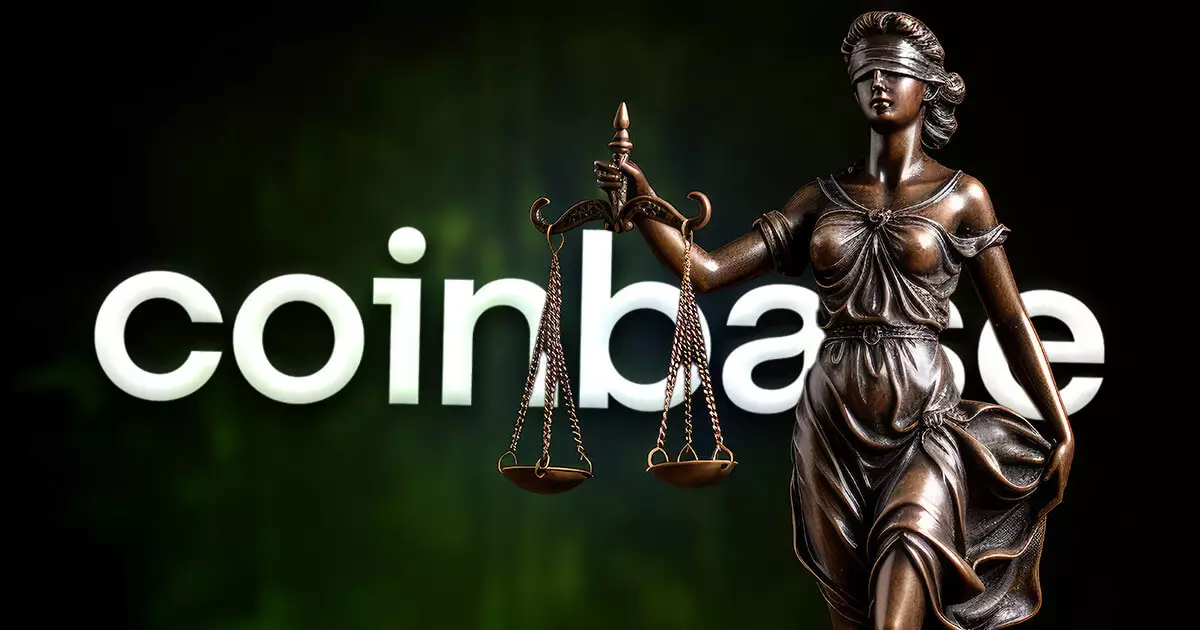In the ever-evolving world of cryptocurrency, wrapped assets such as Wrapped Bitcoin (WBTC) and Coinbase Wrapped Bitcoin (cbBTC) have emerged as critical players, offering users the ability to leverage Bitcoin within the Ethereum ecosystem. The recent lawsuit filed by BiT Global against Coinbase signals a contentious battle for dominance in this lucrative market. At the heart of the dispute lies an accusation that Coinbase, as the leading crypto exchange in the United States, has engaged in anti-competitive behavior by delisting WBTC—a move that BiT Global claims seeks to undermine competition and consolidate Coinbase’s market power.
BiT Global’s allegations assert that Coinbase’s delisting of WBTC was not merely a matter of regulatory compliance or maintaining listing standards but was driven by a desire to promote its own wrapped Bitcoin token, cbBTC. This claim suggests that Coinbase is utilizing its significant market position to stifle competition and secure a larger share of the wrapped Bitcoin market, which in turn could lead to increased transaction fees on its platform. The lawsuit accuses Coinbase of leveraging its dominance to shape the market landscape in favor of its proprietary product under the guise of regulatory compliance.
The crux of BiT Global’s lawsuit is rooted in the timing and rationale behind Coinbase’s decision to remove WBTC. The exchange has defended its actions by citing compliance with listing standards, a claim that BiT Global contests by pointing to the recent listing of various meme coins such as PEPE and MOG. By including these less established cryptocurrencies, BiT Global argues that it illustrates a double standard in Coinbase’s approach to listing and delisting, thereby suggesting ulterior motives in its treatment of WBTC.
BiT Global’s arguments highlight important concerns within the decentralized finance (DeFi) community regarding the influence of centralized platforms over wrapped assets. The perception that major exchanges can manipulate market conditions raises questions about the integrity and decentralization that the cryptocurrency space has sought to promote since its inception.
Furthermore, the complaint suggests that Coinbase’s current strategy might lead to increased transaction costs for users as cbBTC gains traction, hinting at a potentially coercive approach to market competition. This underscores a growing concern about the need for regulations that ensure fair competition and prevent monopolistic practices within the cryptocurrency marketplace.
The implications of this legal battle extend beyond the parties involved and touch upon the broader DeFi ecosystem. BiT Global’s actions reflect a desire to restore not just competition but also innovation within the space that could be stymied by a monopolized market. As more firms, including Coinbase, develop their own wrapped Bitcoin products, the dynamic of competition looks set to reshape the very architecture of crypto finance.
BiT Global’s emergence as a custodian for WBTC in the wake of BitGo’s custody restructuring marks a pivotal moment in the control of wrapped assets. The DeFi community has experienced anxiety regarding the stability and reliability of WBTC, especially given Justin Sun’s association with BiT Global. Despite such concerns, major protocols like MakerDAO and Aave have opted to retain WBTC as collateral, indicating a complex landscape in which trust and innovation must be delicately balanced.
The outcome of this lawsuit is poised to have significant ramifications for both BiT Global and Coinbase, as well as for the broader cryptocurrency market. If the court finds in favor of BiT Global, it could result in reinstating WBTC on Coinbase’s platform and create a more level playing field for other wrapped Bitcoin products. Conversely, a ruling in favor of Coinbase may embolden centralized exchanges to further consolidate their power within the market, ultimately risking the values of decentralization and innovation that the crypto community holds so dearly.
As the industry continues to mature, this lawsuit highlights critical questions surrounding regulation, competition, and the ethical responsibilities of major exchanges in a rapidly changing landscape. With billions of dollars at stake and increasing scrutiny from regulators, the cryptocurrency sector must navigate these legal and ethical challenges to ensure a future that is both competitive and equitable for all participants.


Leave a Reply